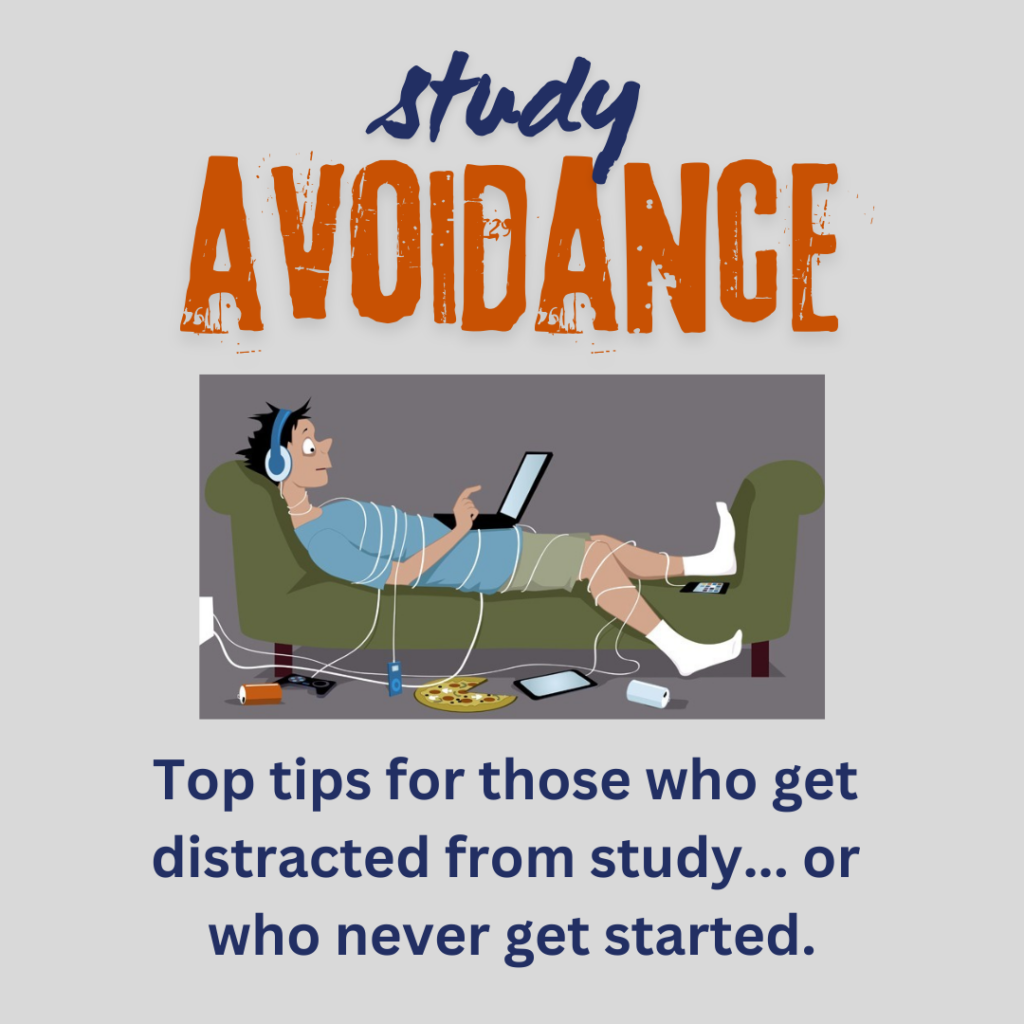
Study is HARD! Your child has covered loads of work – and now they’re expected to go through it all again! And to reproduce it in the required format – maybe a project, tests or exams.
The thing is, we’re wired to be curious and enjoy discovering new things. Historically, we would learn through experience. Going over stuff from books or screens without any context in life (other than those looming exams or deadlines) can feel unnatural – and unachievable. Not surprising they’d rather do almost anything else!
If it’s a big project, or end of year exams, the task can seem like an unclimbable mountain. And if your child doesn’t make great notes, the task might be even more impossible! They might never even start the work… Or might start with good intentions, but then get distracted – for hours!
A fixable developmental issue?
I have a few TOP TIPS to implement right now – but first, here’s the BIG INSIGHT. What if all this distraction, this reluctance to get started, is because of a (fixable) developmental issue you might not even be aware of? An issue which affects their fundamental abilities in:
- focus
- organising information
- working memory
- efficient mental processing.
It could be that they’ve always needed to put extra effort in to account for these foundations not being fully in place – but when faced with this new challenge, the demand seems too great. If mental organisation, memory, and processing skills are not fully wired in, study is only going to get harder.
The exciting thing is that a neurodevelopmental programme of specific movements can support the brain to rewire itself as originally intended. No surgery, no medicines, no talking therapy. And this can be achieved in time for next year’s big project/exams! Why not take a look at my website? There’s a questionnaire to see if neurodevelopmental therapy might help, and a link to book in for a free discovery call.
But I know you need help NOW! So here are my SEVEN TOP TIPS for study-avoiders.
- Get some great revision notes. If yours don’t fill you with confidence, buy some or ask a friend if you can make copies of theirs.
- Try e.g. Cognito for maths and science.
- Set yourself small achievable goals. I mean, really small, but with a short timescale to match.
- Choose someone to share those goals with, who will check in with you. (If you haven’t achieved your goal, it was too big!)
- Do some exercise to get the blood flowing to your brain – it helps you feel more positive, and helps with sleep, too!
- Use learning strategies, such as recording and listening back. These techniques will involve more parts of your brain than just reading – so will improve the effectiveness of your learning. They are also more interesting, so will help your focus. There are loads of ideas on the web – but limit yourself to 10 minutes of research before putting one of them into practice!
- Finally, remember… How do you eat an elephant? One bite at a time!
Contact me at kathryn.clough@chrysalis.co.uk
